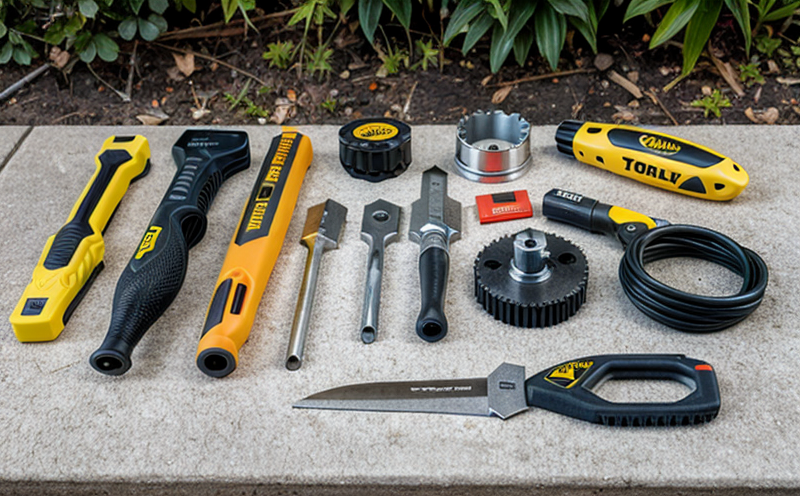Drill Bit Hardness and Durability Testing
The durability of drill bits is a critical factor in ensuring long-term performance and safety. In consumer products and hardware testing, drill bit hardness and durability are evaluated through various standardized tests to determine the quality and reliability of these tools. Understanding the properties that contribute to a drill bit's hardness and durability can help manufacturers optimize their production processes and improve product performance.
Drill bits used in DIY settings must withstand extensive use without breaking or degrading, making them essential for both consumer safety and satisfaction. The hardness of a drill bit is a measure of its resistance to indentation and scratching by harder materials. Durability refers to the drill bit's ability to maintain these properties over time under various conditions.
Hardness testing involves measuring how resistant a material is to indentation or scratch marks, typically using scales like Rockwell (HRC) or Vickers hardness tests. For drill bits, the goal is not only to achieve high hardness but also to ensure that this hardness translates into real-world durability and longevity. Durability can be assessed through various methods such as simulated use cycles, impact resistance testing, and wear testing.
When selecting a drilling tool for home or professional use, it's important to consider factors like the material composition of the drill bit (e.g., carbon steel vs. tungsten carbide), the intended application (wood, metal, concrete), and environmental conditions under which the tool will operate. Proper hardness testing ensures that these tools meet industry standards and provide reliable performance.
Manufacturers often use advanced materials science to develop drill bits with optimized hardness profiles tailored to specific applications. For instance, tungsten carbide drill bits are known for their high hardness and excellent durability but may be more expensive due to the cost of the material itself. In contrast, carbon steel drill bits offer a balance between price and performance.
Standardized testing methods like those specified in ISO 6507-2 (Rockwell hardness) provide consistent criteria for evaluating drill bit hardness across different manufacturers and products. These tests ensure that consumers can compare the quality of various brands confidently, knowing they are using internationally accepted metrics.
Scope and Methodology
The scope of drill bit hardness and durability testing encompasses both laboratory-based mechanical tests and real-world simulation methods designed to mimic actual usage conditions. Laboratory testing typically involves applying force or impact to the drill bit in controlled environments, while real-world simulations use actual tools under representative operating conditions.
- Laboratory Testing: In this setting, drill bits undergo various mechanical tests aimed at assessing their resistance to indentation and wear. Common tests include:
- Rockwell Hardness Test (HRC): Measures the hardness of a material by measuring the depth of penetration of an indenter under specified loads.
- Vickers Hardness Test: Similar to Rockwell testing, but uses diamond indenter points instead of ball indenters for smaller-scale testing.
- Real-World Simulations: These tests aim to replicate the actual conditions under which drill bits will be used. This could involve:
- Cycling Tests: Subjecting the drill bit to repeated drilling actions over a set number of cycles.
- Impact Resistance Testing: Evaluating how well the drill bit withstands impacts during operation, especially important for cordless drills.
The methodology also includes specimen preparation, which involves selecting appropriate drill bits and ensuring they are in optimal condition before testing. Proper cleaning, drying, and calibration of equipment ensure accurate results.
After conducting these tests, data is collected and analyzed to determine the hardness and durability characteristics of each drill bit. Reporting typically includes statistical analysis of test results, comparative evaluations with industry standards, and recommendations for improvement based on findings.
Eurolab Advantages
Eurolab offers comprehensive expertise in consumer products testing, including specialized services for DIY tools and hardware products. Our state-of-the-art facilities provide the most accurate and reliable results through advanced instrumentation and experienced technical staff. With a strong focus on quality and safety, Eurolab ensures that every test conducted meets or exceeds international standards.
Our team of experts can help you understand the specific requirements for your particular application, whether it's ensuring compliance with European Union directives like CE marking or simply improving product performance through rigorous testing. We offer flexible service packages tailored to meet individual needs and budgets.
Eurolab’s commitment to excellence is reflected in our adherence to ISO 9001 quality management systems, which guarantee consistent high standards throughout all stages of the testing process. By choosing Eurolab for your drill bit hardness and durability testing, you can trust that you're receiving expert guidance backed by years of experience.
We also provide consulting services aimed at helping manufacturers identify areas for improvement in their products. Our engineers work closely with clients to interpret test results, offer recommendations based on findings, and assist in implementing changes designed to enhance product performance.
Quality and Reliability Assurance
Eurolab takes quality assurance seriously, ensuring that all tests are conducted according to established standards. Our commitment to reliability is reflected in our adherence to ISO 9001:2015 for quality management systems, which guarantees consistent high standards throughout the testing process.
- Consistent Results: By using calibrated instruments and trained personnel, Eurolab ensures that each test yields accurate and repeatable results.
- Compliance with Standards: All tests are performed in accordance with relevant international standards such as ISO 6507-2 for Rockwell hardness testing.
- Sustainability Practices: Eurolab integrates sustainability into its operations, minimizing waste and energy consumption while maintaining the highest quality of service.
We maintain strict quality control measures to ensure that every sample is handled correctly from receipt through final analysis. This includes detailed documentation of each step taken during testing, ensuring transparency and traceability throughout the process.
Our approach not only focuses on meeting current regulatory requirements but also looks ahead to future trends in product design and material selection. By staying informed about emerging technologies and best practices, Eurolab remains at the forefront of innovation within our industry.





